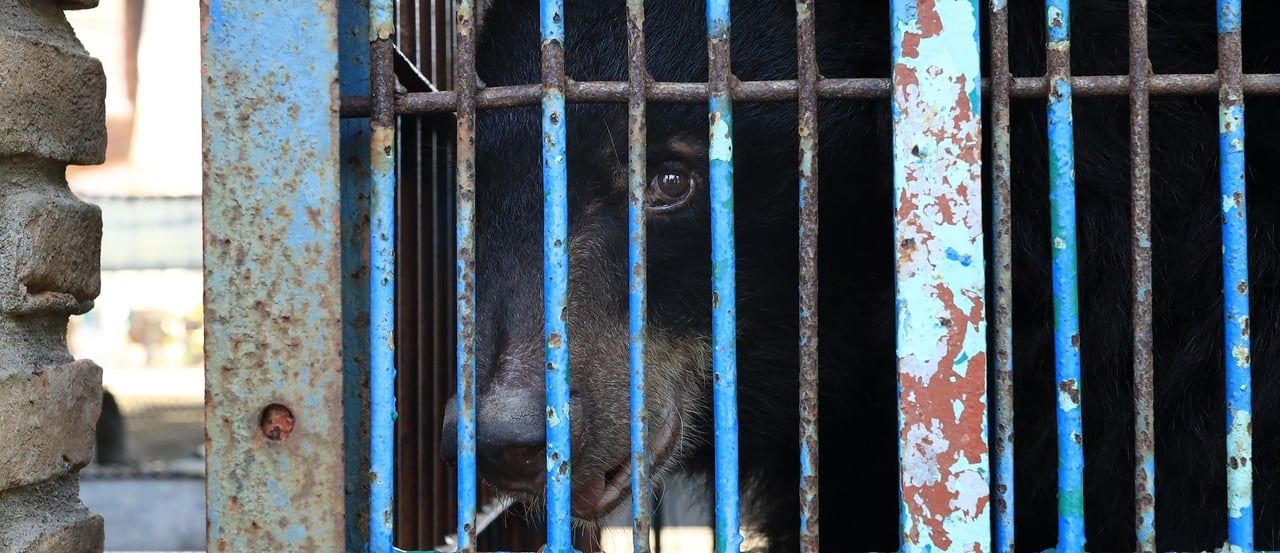
Wild Animals Used For Traditional Medicine
Wildlife trade
Every year, thousands of animals are bred in captivity or snatched from the wild to be brutally killed for their body parts to fuel the highly lucrative global market for traditional Asian medicinal products.
These products include wine, capsules, gels and balms and claim to cure ailments ranging from arthritis to meningitis. However, these medicines have no confirmed proof of human benefit, and many have plant-based alternatives catering for the ailments they claim to help.
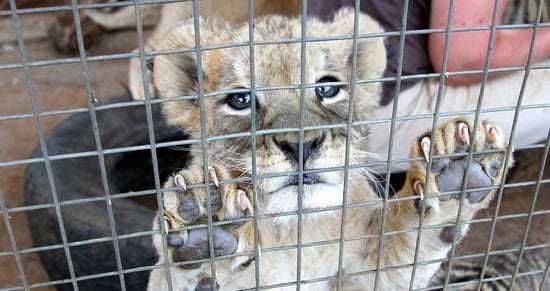
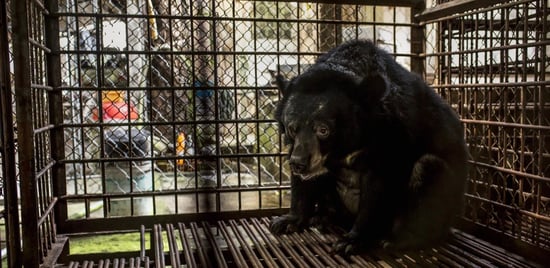
Bears
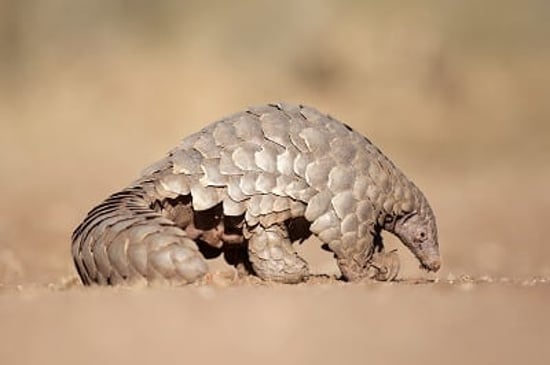
Pangolins
Millions of animals live a torturous life in captivity just to be exploited for their body parts in traditional Asian medicine and health products, making them face some of the most extreme forms of animal abuse every single day. Their suffering is completely unjustified because plant-based and synthetic alternatives are readily available in the market, so there is no excuse for such unimaginable cruelty.
It is thanks to you that South Korea’s bear bile industry has been ground to a halt. Our collective efforts to end the exploitation of animals in the name of traditional medicine have made the number of captive bears in Vietnam greatly reduced from 4,300 in 2005 to less than 285 bears today. But thousands of animals still need your help.
Together, we can make this the last generation of animals to suffer for traditional medicine and with your support, we will continue taking on this exploitative industry until the last cage is empty.

Big cats
Image credit: Pippa Hankinson / Blood Lions
Tigers are brutally slaughtered in the name of traditional medicine
Tigers are the largest members of the cat family. These larger-than-life animals are mostly solitary aside from the relationship between a mother and her cubs. In the wild, cubs will spend up to two years with their mother growing strong and learning from her. But this is not possible in captivity as they are stolen from their mothers at birth and subjected to a lifetime of suffering.
These endangered cats are facing extreme cruelty as they are bred and slaughtered in inhumane ways to be exploited for their bones in the traditional medicine industry. As a result, the WWF estimates that only around 4,500 tigers still live in the wild.
Tigers farmed in China for traditional medicine are restricted to a cage that only measures about 4x7 metres on average. These tigers are either unnaturally bred in sterile facilities or poached from the wild at a young age. They are cruelly farmed to produce traditional medicine products, including tiger bone wine and tiger bone ointment.
Such a life filled with intense pain and suffering is no life at all. With your support, we can ensure that tigers are not commodified, and give them a chance to grow with their mothers in the wild. Together, we can give tigers a life worth living, free from exploitation and cruelty.
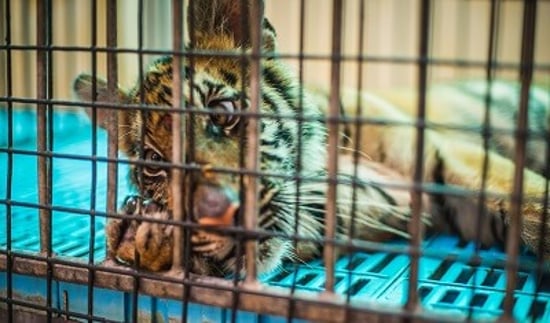
Trading cruelty
Read our 'Trading Cruelty' report and learn how captive big cat farming fuels the traditional medicine industry.

Bears
Image credit: World Animal Protection / Tim Gerard Barker
Bear bile farming: one of the world’s most extreme forms of animal abuse
Bears are one of the most intelligent animals in the world. They can count, use tools, solve problems and communicate with a range of vocalisations and complex facial expressions. However, these sentient mammals are being held in captivity for their ‘bile’ which is a fluid secreted by the liver and is highly valued in traditional Asian medicine.
Bear bile farming is one of the cruellest abuses of animals in the world and is of dubious medicinal value. Their bile is extracted in intolerably inhumane ways, often by people with no veterinary qualifications causing the bears extreme distress and pain. The helpless animals moan and rock due to extreme anxiety, and many of them have broken teeth from biting on the bars of their cages.
Today, not only is their bile a component of traditional medicine but is used in everyday luxury products such as wine, face masks, soda, and tonics – driving up the demand. Making bears suffer in such a horrific and terrifying way is indefensible as there are non-animal alternatives readily available.
In 2005, the Government of Vietnam outlawed bear bile farming. At that time 4,300 bears were held on farms. All had to be microchipped and registered, to prevent new bears entering the farms, and it became illegal to extract their bile. However, it is still legal to keep bears on farms and illegal bear bile production continues behind closed doors.
Since 2006, in collaboration with authorities and our local partner, Education for Nature (ENV), World Animal Protection has been providing equipment and training for microchipping bears in Vietnam, introducing new cutting-edge microchipping technology in 2015, and working on an extensive monitoring programme of farms, which continues to this day.
Thanks to this monitoring, bears that are identified without a microchip and/or registration papers, deeming them illegal, are confiscated. They are then moved by authorities to government rescue centres or by Four Paws and Free the Bears to one of their sanctuaries. World Animal Protection, working with authorities and ENV, continues to play a key role identifying and confiscating illegal bears or convincing bear owners to voluntarily surrender their bears.
It is with your support that the bear bile industry in South Korea has been ground to a halt today, making it the last generation of bears to suffer there. The monitoring programme has been integral in moving Vietnam to end bear bile farming, and today there are more bears in sanctuaries and rescue centres than on farms. Our aim is to ensure the Vietnam government closes all bear farms and transfers any remaining bears to sanctuaries and rescues centres by 2025, so that no more bears suffer in captivity.
Together, we will continue to take on exploitative industries until the last cage is empty.
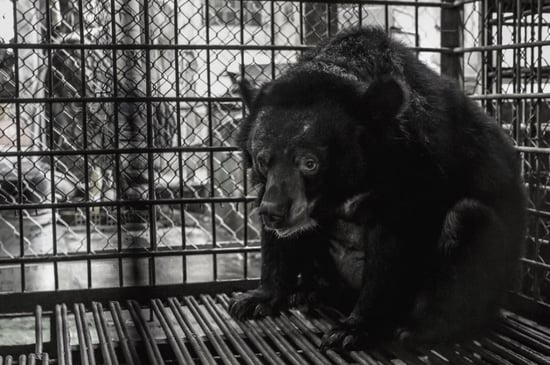
Cruel cures
Read our 'Cruel Cures' report and learn about the industry behind bear bile production and how we can end it.
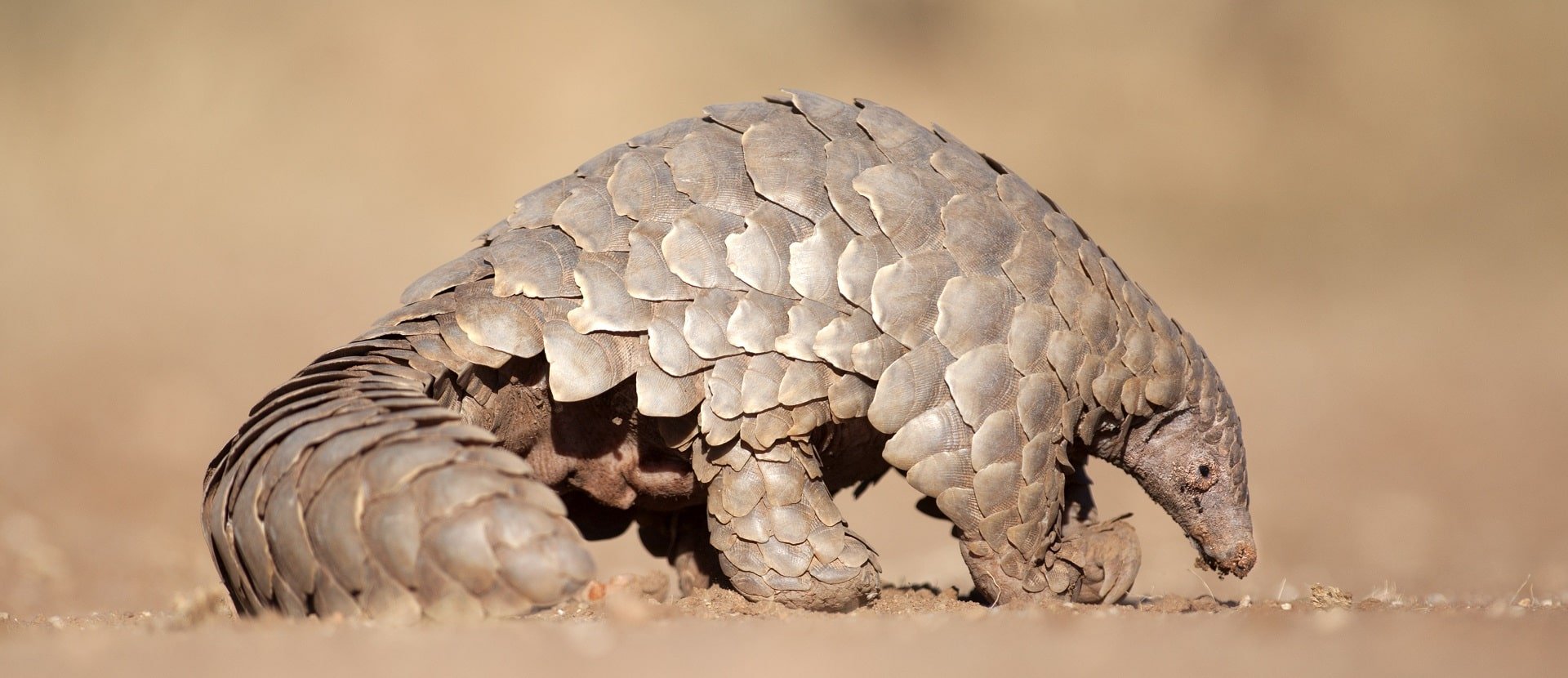
Pangolins
Image credit: Adobe Stock
Pangolins: the most illegally trafficked mammal in the world
Pangolins are gentle, solitary and nocturnal creatures whose scales are meant to protect them from predators. Unfortunately, thousands of them are poached each year for these very scales, which are made of ‘keratin’ the same protein present in our hair and fingernails – just to be used in traditional Asian medicine which has no confirmed proof of human benefit. This has made them earn the reputation of the most illegally trafficked mammal in the world.
Typically, when hunters approach a pangolin, the terrified animal tries to hide from them in a hollowed-out tree, covering her head and clinging for her life. They then tug on her tail or try to smoke her out. As the pangolin starts to suffocate and lose consciousness, she makes a bolt for freedom but is captured and shoved into a bag. She rolls up in a ball, exposing her scaly suit of armour but is repeatedly bludgeoned with a machete until she is motionless. While she bleeds, she is thrown into a cauldron of boiling water and boiled alive.
Pangolins endure unimaginable pain and suffering even though there are plant-based alternatives readily available. Together, we will continue exposing the exploitation of these gentle animals and working towards putting an end to their needless suffering.

Suffering at scale
Read our 'Suffering at scale' report and learn more about pangolin poaching for the traditional medicine trade.
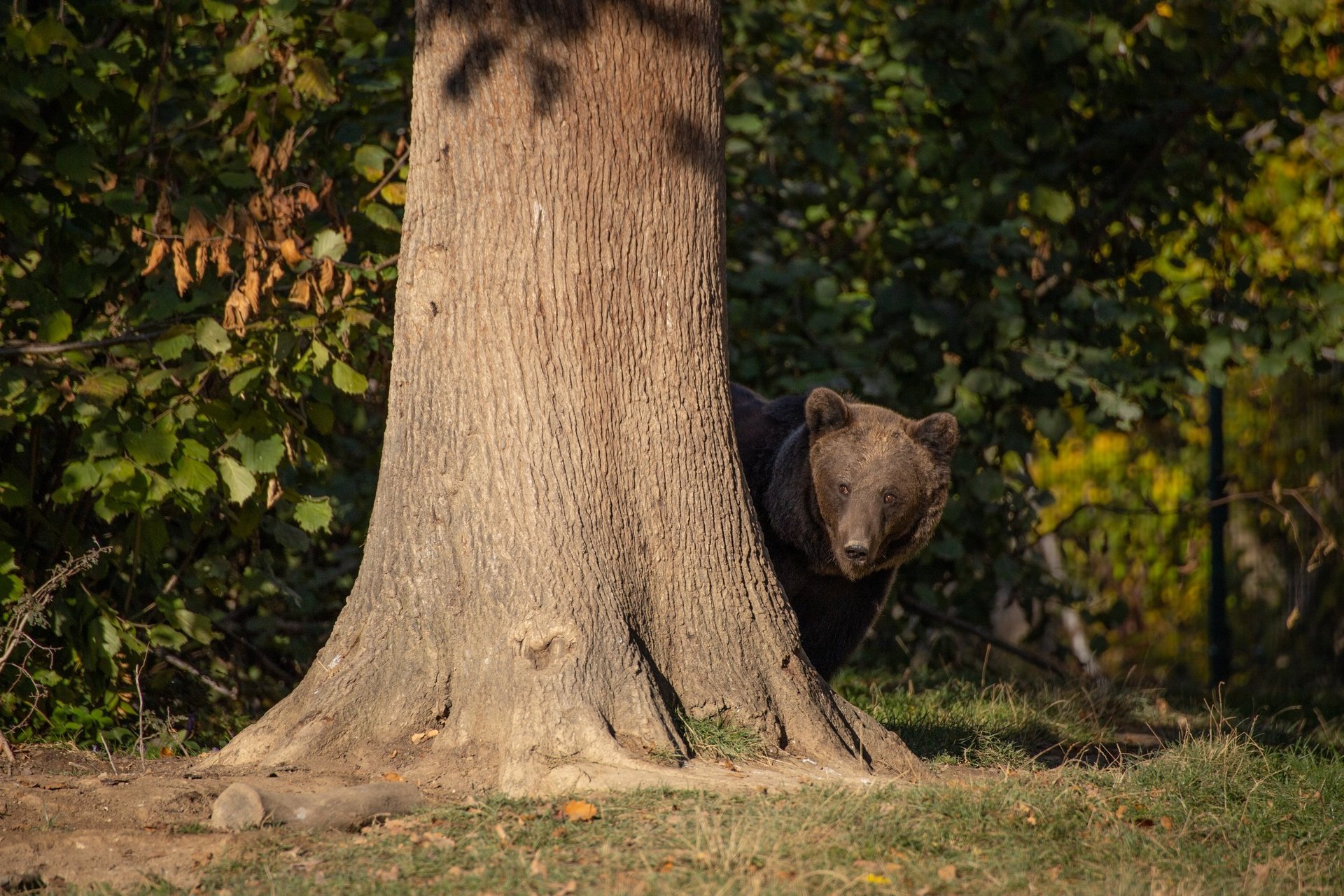
Keep up to date
Join thousands of animal lovers fighting to protect wildlife and give farmed animals good lives. Sign up now to receive emails with all the ways you can help.
Sign up